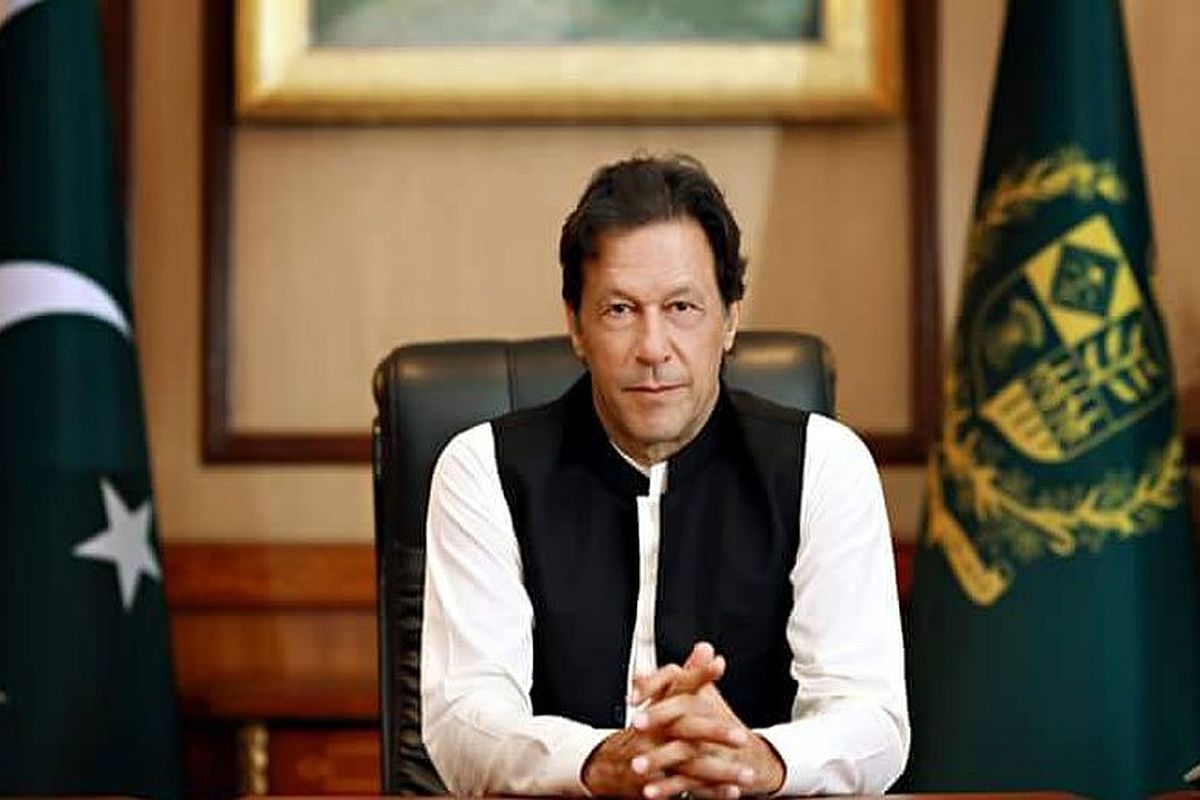Pakistan’s ANF arrests 10 suspects in drug smuggling operations
The Anti-Narcotics Force (ANF) of Pakistan arrested 10 individuals involved in drug smuggling in operations across the country, said a statement.
The elevation of Shahbaz Sharif, who is presently leader of the opposition as Prime Minister is unlikely to bring political stability to Pakistan. Presently, both political parties, PML Nawaz and PPP, have come together to depose Imran Khan, but it is doubtful that this political unity would remain once they start running the government.

Imran Khan (Twitter photo))
The political innings of Imran Khan as a selected Prime Minister of Pakistan came to an end when the Pakistani army felt that the person chosen by them had become a liability. Imran Khan became the Prime Minister of Pakistan in 2018 after he secured majority in the National Assembly, leaving behind two established political parties – the Pakistan People’s Party (PPP) and Pakistan Muslim League-Nawaz (PML-N). However, it was widely believed that in this endeavour Imran and his political outfit Pakistan Tehreek-eInsaf (PTI) was helped by the army.
Unfortunately, Imran Khan who came to power with the promise to build a ‘Naya Pakistan’ could not do so and the economic condition of the country continued to deteriorate. A desperate Imran soon resorted to policies that were not to the liking of the army.
Though Imran tried every trick to stick to power, things became difficult for him once he lost the support of the army. The opposition parties sensing an opportunity decided to bring a no-confidence motion in the National Assembly so that the government could be removed. They submitted this motion on 8 March 2022, accusing his government of bringing uncontrolled inflation. This was tabled in the National Assembly on March 28 by PML-N chief Shehbaz Sharif.
Advertisement
The opposition parties, PML Nawaz and PPP, rallied around Shahbaz Sharif, the younger brother of Nawaz Sharif. The writing on the wall for the Imran Khan government became very clear when a key coalition partner in his government stated that its seven lawmakers would vote with the opposition. More than a dozen lawmakers from the ruling party also indicated that they would cross the floor. The defection of his coalition partners reduced his government to a minority.
Imran subsequently tried to thwart the no-confidence vote by filing a review petition in the Supreme Court which had asked the speakers of the National Assembly to hold the vote. In the Cabinet meeting held before the start of the no-trust vote, Imran decided not to resign even though his government was expected to lose. Interestingly, both Pakistan National Assembly Speaker Asad Qaiser and Deputy Speaker Qasim Suri resigned minutes before the notrust vote began.
It became very clear that they were doing so at the bidding of Imran Khan and were not neutral which the speaker is supposed to be. Despite several attempts to block the no-confidence motion in the National Assembly, voting took place in which as many as 174 members voted in favour of the motion in the 342-member House while members of the ruling Pakistan Tehreek-eInsaf (PTI) were absent. This ensured that Imran would not complete his full five-year term like his predecessors. This also made Imran Khan become the first Prime Minister of Pakistan to lose a no-trust vote in the National Assembly.
The elevation of Shahbaz Sharif, who is presently leader of the opposition as Prime Minister is unlikely to bring political stability to Pakistan. Presently, both political parties, PML Nawaz and PPP, have come together to depose Imran Khan, but it is doubtful that this political unity would remain once they start running the government. However, this is not considered a major challenge for Pakistan as elections are in any case due by August 2023. Imran Khan on the other hand wants immediate elections.
He is playing the victim card and hopes to capitalize on the supposed people’s sympathy for him. He has also floated a ‘conspiracy theory.’ He has accused the United States of conspiring against him and his government. Though the US has denied these charges, Imran Khan alleges that an attempt is being made to bring an imported government in Pakistan. He is presenting himself as the saviour of Pakistan and its sovereignty. He has accused western powers of trying to impose their foreign policy on Pakistan. Surprisingly, he also appreciated India for following an independent foreign policy that is in its people’s interest.
However, these statements made by Imran in his address to the Pakistani nation were seen as a last-ditch attempt of a politician to protect his regime or at least to protect his following in case his government falls. Imran in his address to the nation tried to incite people to come out on the street and protest. Pakistan is likely to see protests and counter-protests in the days to come. This will create political uncertainty in the country, but the neighbouring countries like India don’t have much to worry about as foreign and security policies of Pakistan are controlled by its powerful army. In these areas civilian governments have hardly any say.
Moreover, the situation at the India-Pakistan border has improved since the start of the ceasefire in 2021. This ceasefire has the blessings of the Pakistani army. The situation on the border might actually improve under a new government as the army would like to build on these successes. The loss of the no-trust vote is a political setback for Imran Khan. However, the political career of Imran may not come to an end after his removal from power. A lot depends on how he plays the political game from here on.
(The writer is Associate Fellow, Manohar Parikkar Institute for Defense Studies & Analyses.)
Advertisement